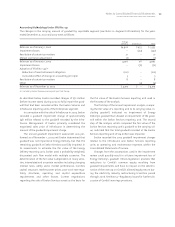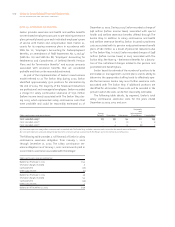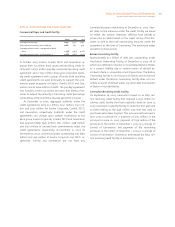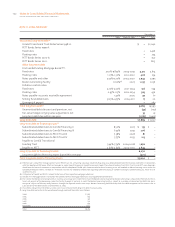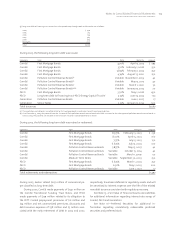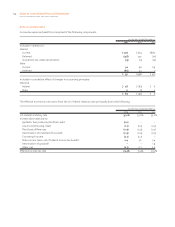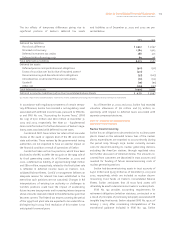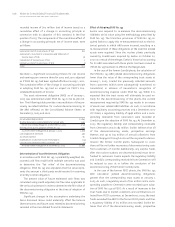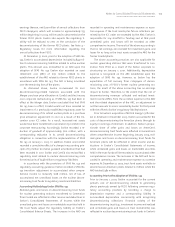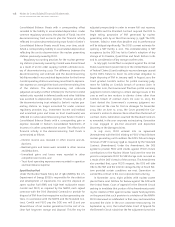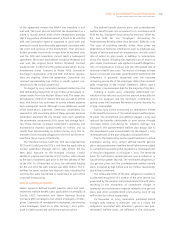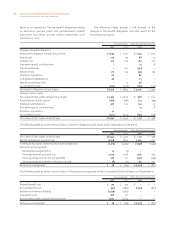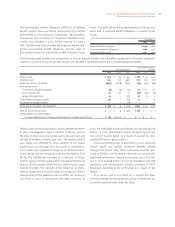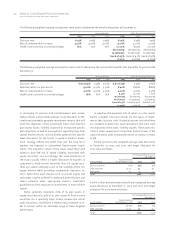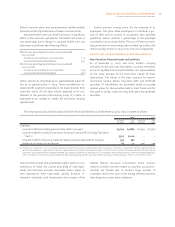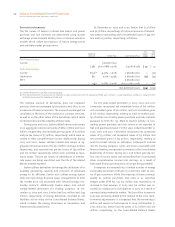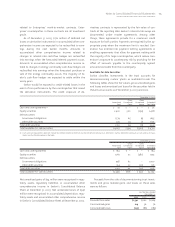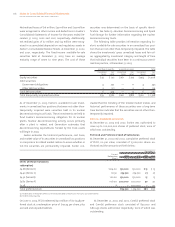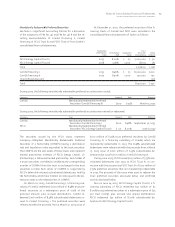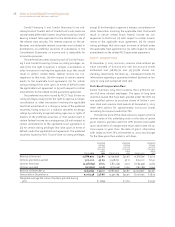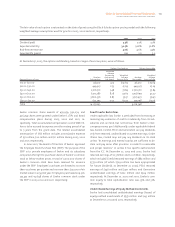ComEd 2003 Annual Report Download - page 111
Download and view the complete annual report
Please find page 111 of the 2003 ComEd annual report below. You can navigate through the pages in the report by either clicking on the pages listed below, or by using the keyword search tool below to find specific information within the annual report.109Notes to Consolidated Financial Statements
EXELON CORPORATION AND SUBSIDIARY COMPANIES
of the agreement violates the NWPA and therefore is null
and void. The Court did not hold that the Amendment as a
whole is invalid. Article XVI(I) of the Amendment provides
that if any portion of the Amendment is found to be void, the
DOE and Generation agree to negotiate in good faith and
attempt to reach an enforceable agreement consistent with
the spirit and purpose of the Amendment. That provision
further provides that should a major term be declared void,
and the DOE and Generation cannot reach a subsequent
agreement, the entire Amendment would be rendered null
and void, the original Peach Bottom Standard Contract
would remain in effect and the parties would return to pre-
Amendment status. Pursuant to Article XVI(I), Generation
has begun negotiations with the DOE and those negotia-
tions are ongoing. Under the agreement, Generation has
received approximately $40 million in credits against con-
tributions to the nuclear waste fund.
On August 14, 2003, Generation received a letter from the
DOE demanding repayment of $40 million of previously re-
ceived credits from the Nuclear Waste Fund. The letter also
demanded $1.5 million of interest that was accrued as of that
date, and Exelon has continued to accrue interest expense
each subsequent month. Although a new settlement would
offset Generation’s payments, Generation nonetheless has
reserved its 50% ownership share of these amounts. Because
Generation expenses the dry storage casks and capitalizes
the permanent components of its spent fuel storage facili-
ties, these reserves increased Generation’s operating and
maintenance expense approximately $11 million and its
capital base approximately $9 million during 2003. The re-
mainder of the recorded obligation to the DOE will be recov-
ered from the co-owner of the facility.
The Standard Contract with the DOE also required that
PECO and ComEd pay the DOE a one-time fee applicable to
nuclear generation through April 6, 1983. PECO’s fee has
been paid. Pursuant to the Standard Contract, ComEd
elected to pay the one-time fee of $277 million, with interest
to the date of payment, just prior to the first delivery of SNF
to the DOE. As of December 31, 2003, the unfunded liability
for the one-time fee with interest was $867 million. The li-
abilities for spent nuclear fuel disposal costs, including the
one-time fee, were transferred to Generation as part of the
corporate restructuring.
NOTE 14 ‰RETIREMENT BENEFITS
Exelon sponsors defined benefit pension plans and post-
retirement welfare benefit plans applicable to essentially all
ComEd, PECO, Generation and Exelon Business Services
Company (BSC) employees and certain employees of Enter-
prises. Essentially all management employees, and electing
union employees, hired on or after January 1, 2001 partic-
ipate in Exelon sponsored cash balance pension plans.
The defined benefit pension plans and postretirement
welfare benefit plans are accounted for in accordance with
SFAS No. 87, “Employer’s Accounting for Pensions” (SFAS No.
87) and SFAS No. 106, “Employers’ Accounting for
Postretirement Benefits Other than Pensions” (SFAS No. 106).
The costs of providing benefits under these plans are
dependent on historical information, such as employee age,
length of service and level of compensation, and the actual
rate of return on plan assets, in addition to assumptions
about the future, including the expected rate of return on
plan assets, the discount rate applied to benefit obligations,
rate of compensation increase and the anticipated rate of
increase in health care costs. The impact of changes in these
factors on pension and other postretirement welfare benefit
obligations is generally recognized over the expected
remaining service life of the employees rather than immedi-
ately recognized in the income statement. Exelon uses a
December 31 measurement date for the majority of its plans.
Funding is based upon actuarially determined con-
tributions that take into account the amount deductible for
income tax purposes and the minimum contribution re-
quired under the Employee Retirement Income Security Act
of 1974, as amended.
During 2003, Exelon announced an amendment related
to the benefit provisions of its postretirement welfare bene-
fit plans. The amendment was effective August 1, 2003 and
reduced the benefits attributable to prior service through
increased retiree cost-sharing for medical coverage. The
changes in the postretirement welfare plan design due to
the amendment were incorporated into the August 1, 2003
remeasurement of the plan obligation discussed below.
Due to The Exelon Way and an overall reduction in active
employees during 2003, certain defined benefit pension
plans and postretirement welfare benefit plans were subject
to curtailment accounting that resulted in a remeasurement
of the plan obligations as of August 1, 2003. The threshold
basis for curtailment remeasurement was a reduction in
future service greater than 5%. The net benefit obligations of
the pension plans and the postretirement welfare benefit
plans increased by $48 million and $27 million, respectively,
due to the curtailment.
The remeasurements of the plan obligations resulted in
accelerated recognition of a portion of the prior service cost
generated by the pension and postretirement benefit plans,
resulting in the recognition of curtailment charges in
operating and maintenance expense related to the pension
plans and other postretirement plans during 2003 of $59
million and $21 million, respectively.
On December 22, 2003, Generation purchased British
Energy’s 50% interest in AmerGen, and as a result, the
obligations associated with AmerGen’s pension and post-
retirement welfare plans are reflected in the disclosures


